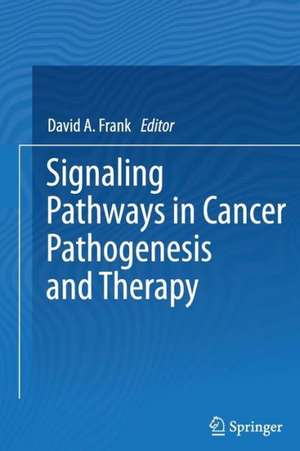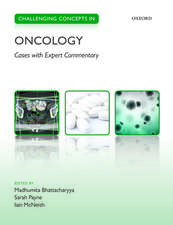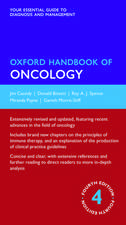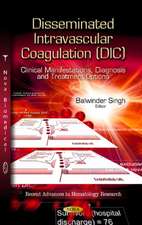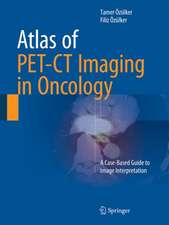Signaling Pathways in Cancer Pathogenesis and Therapy
Editat de David A. Franken Limba Engleză Paperback – 26 ian 2014
| Toate formatele și edițiile | Preț | Express |
|---|---|---|
| Paperback (1) | 708.23 lei 6-8 săpt. | |
| Springer – 26 ian 2014 | 708.23 lei 6-8 săpt. | |
| Hardback (1) | 713.54 lei 6-8 săpt. | |
| Springer – 12 noi 2011 | 713.54 lei 6-8 săpt. |
Preț: 708.23 lei
Preț vechi: 745.50 lei
-5% Nou
Puncte Express: 1062
Preț estimativ în valută:
135.52€ • 141.87$ • 112.13£
135.52€ • 141.87$ • 112.13£
Carte tipărită la comandă
Livrare economică 05-19 aprilie
Preluare comenzi: 021 569.72.76
Specificații
ISBN-13: 9781489992222
ISBN-10: 1489992227
Pagini: 156
Ilustrații: VIII, 148 p.
Dimensiuni: 155 x 235 x 8 mm
Greutate: 0.23 kg
Ediția:2012
Editura: Springer
Colecția Springer
Locul publicării:New York, NY, United States
ISBN-10: 1489992227
Pagini: 156
Ilustrații: VIII, 148 p.
Dimensiuni: 155 x 235 x 8 mm
Greutate: 0.23 kg
Ediția:2012
Editura: Springer
Colecția Springer
Locul publicării:New York, NY, United States
Public țintă
ResearchCuprins
Signaling Pathways in Cancer: 21st Century Approaches to Cancer Therapy.- Current And Next Generation Antimitotic Therapies In Cancer.- DNA Damage Checkpoint Signaling Pathways in Human Cancer.- Non-Receptor Tyrosine Kinases and their Roles in Cancer.- The Hedgehog Signaling Pathway in Cancer Pathogenesis and Therapy.- Wnt Signaling in Cancer Pathogenesis and Therapeutics.- STAT Signaling in the Pathogenesis and Treatment of Cancer.- Protein Therapeutics in Oncology.- Index
Textul de pe ultima copertă
Since the 1940s, the treatment of advanced cancer has been based on administering maximal doses of non-specifically toxic drugs in the hope that cancer cells would be killed more effectively than normal cells. While this is occasionally successful, for most common cancers only a minority of patients experience any meaningful benefit. Unfortunately, nearly all treated patients experience toxicities, which range from unpleasant to life threatening. In recent years, however, our understanding of the molecular underpinnings of cancer has increased enormously. We now have a much deeper understanding of how intracellular signaling pathways that control critical cellular functions can become subverted by the genetic alterations arising in a cancer cell. In fact, we are now in a position to use this knowledge to design rational targeted therapeutic approaches that hold the promise of much greater efficacy with fewer side effects. In this volume, oncologists and scientists from academia, government, and industry have come together to provide insight into strategies to modulate signaling pathways, which are currently being translated from the laboratory to the clinic. These advances will hopefully usher in a new era in the treatment of cancer patients, and thus the goal of this volume is both to inform those interested in this field, and to inspire further contributions in this cutting edge area.
Caracteristici
Explores novel therapeutic strategies to inhibit signaling Discusses current and next generation antimitotic therapies in cancer Features up-to-date research Includes supplementary material: sn.pub/extras
